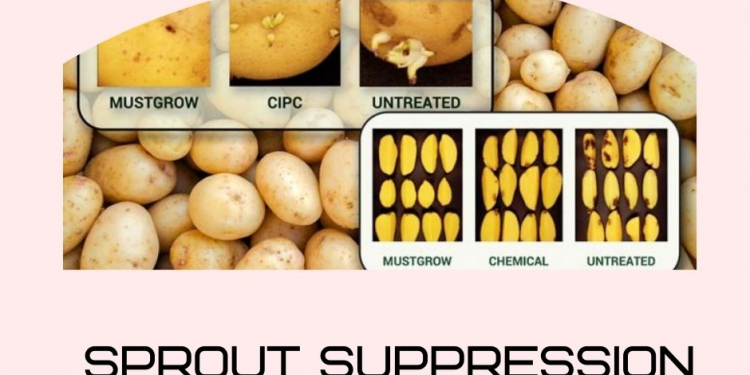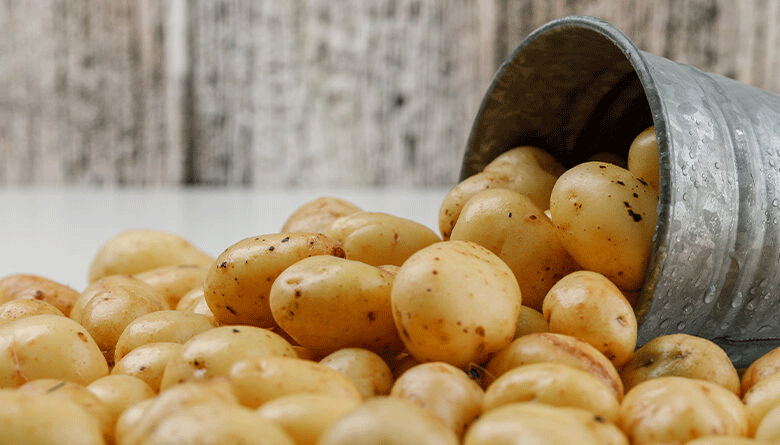Successful postharvest trials in both disease control and sprout suppression of stored potatoes conducted by a third-party independent laboratory have been recently announced by MustGrow Biologics Corp.
Based on a recent press release, the company’s organic mustard plant-based technology outperformed leading synthetic chemical standards for the treatment of stored potatoes for both Fusarium dry rot disease and sprouting.
“No combination solutions currently exist that treat both disease and sprouting – making MustGrow’s application unique in addressing both postharvest issues in potatoes simultaneously,” the developer’s experts added.
MustGrow’s postharvest development program may now transition to Sumitomo Corporation across the Americas (potatoes and bananas) and Bayer across Europe, Asia Pacific, Middle East, and Africa (potatoes only). Further testing and trials are required to evaluate commercial potential. Additional postharvest applications may also be trialed, including disease control in large shipping containers.
MustGrow had previously announced separate collaboration agreements with Sumitomo Corporation and Bayer to evaluate the efficacy and commercial potential of MustGrow’s technology.
Disease Control – Fusarium Dry Rot
MustGrow’s mustard-derived technology was trialed versus hydrogen peroxide, a leading synthetic chemistry standard, to measure control (kill) of Fusarium dry rot (Fusarium sambucinum conidia and F. sambucinum). MustGrow’s technology outperformed the chemical standard at multiple rates with statistical significance. Disease control was measured after the five-week interval, highlighting the effectiveness of MustGrow’s technology at killing not only the Fusarium dry rot itself but also the disease’s ability to reform and replicate.
Sprout Inhibition Success
MustGrow’s mustard-derived technology outperformed the chemical standard in sprout suppression, chlorpropham (“CIPC”), at multiple rates with statistical significance after the five-week period. Additionally, sprouts remained absent after the trial, highlighting the MustGrow technology’s outperformance.
Sprout suppression utilizing MustGrow’s technology demonstrated over 2x the length of control over the CIPC standard rate during the five-week study. MustGrow’s technology, mustard-derived AITC, has a short ‘half-life’ of 24-72 hours, whereas CIPC is known to accumulate within walls, surfaces, conveyor belts, and facility concrete, with no sanitization procedure able to eliminate its presence. The European Union as of Oct. 8, 2020 has banned CIPC.







